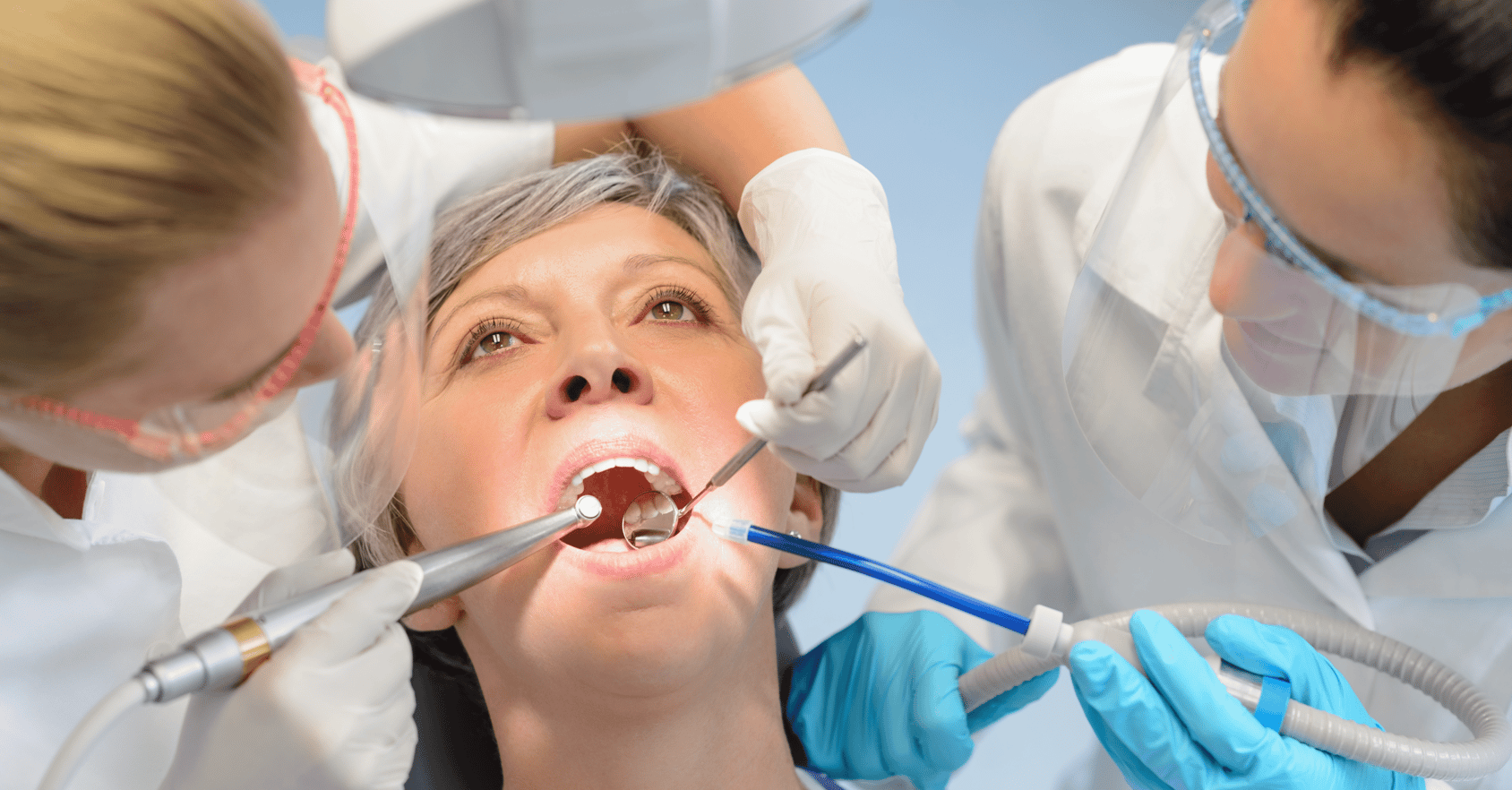
The current state of health care in the United States - and specifically health care for the growing senior population - is a hot topic in many circles. We may have a personal connection to it as we reach retirement age, or as we help our aging parents or grandparents navigate the often complex and sometimes inadequate options available to them. But what are the actual facts? Why is oral health so important for seniors?
The facts about dental care for American seniors
The following facts and stats will provide an overall picture of the current situation facing Americans over the age of 60 in terms of dental care:
Common complaints
As we age, our mouths - like the rest of the body - undergo changes. Older Americans most commonly deal with the following oral health issues:
- Dry mouth - A common side effect of prescription medications, dry mouth is a very common cause of other oral health problems like cavities and gum disease because the mouth’s first line of defense against the bacteria that cause these issues - saliva - is greatly reduced.
- Cavities - A result of dry mouth and the natural wear and tear of many years of hard use, the enamel on older teeth tends to wear down and succumb to dental caries more easily than in younger years.
- Gum disease - Also due in part to dry mouth, gingivitis and other periodontal diseases are common in older patients who struggle to effectively brush, floss, and rinse as they used to. It’s often painless until its advanced stages, so amid a host of other health concerns, seniors are usually unaware of the issue until it becomes seriously painful.
- Oral cancer - About 35,000 cases of mouth and throat cancer are diagnosed annually, with the average age at diagnosis being 62. Like gum disease - but far more serious in the long term - mouth cancer can be nearly painless and difficult to detect without regular dental visits where a dentist will usually make a visual diagnosis before the patient is aware of any issue.
Insured vs. uninsured
While these oral health complaints are common among American seniors, adequate dental insurance coverage is not.
Many seniors don’t realize ahead of time that standard Medicare does not cover routine dental care. This leaves retirees on fixed incomes scrambling to afford this care out-of-pocket, or to supplement their Medicare coverage with additional riders and gap insurance plans.
While dental plan options exist, the reality is that dental insurance is outside the realm of affordability for many retirees who rely on a limited income through Social Security, personal savings, or an overall tight budget.
Average costs

For seniors who choose to pursue dental coverage or who agree to pay out-of-pocket for the oral health care they need, the cost of dental care in the United States has risen dramatically, and that trend continues each year.
Depending on where you live in the country, a dental cleaning and examination can range anywhere from $150 to $327, with $275 as an estimated average. A filling in repair of a cavity can cost another $160 to $201, and a root canal can set you back another $300 to $2,500 depending on the specific requirements of your procedure.
That means that a retired American who does an excellent job caring for their teeth and visits the dentist twice a year as recommended can still spend hundreds per year on their dental care. But if any issues arise like those described above, that bill can skyrocket into the thousands.
The cost of dental insurance likewise ranges significantly. In some cases, especially if more advanced dental procedures are often required, a high premium cost can save money over paying out-of-pocket. However, in other cases, the cost of the insurance outweighs the potential savings it offers due to copays, deductibles, and plan limitations.
The importance of quality dental care for seniors

"While dental plan options exist, the reality is that dental insurance is outside the realm of affordability for many retirees who rely on a limited income through Social Security, personal savings, or an overall tight budget."
Based on the facts above, it’s obvious that American seniors have reason to pay attention to their oral health care as they age. They are more prone to certain oral health conditions, their teeth are naturally weakening, and the cost of care is constantly on the rise.
But ignoring oral health in favor of saving money can be very dangerous. As noted above, serious health concerns are often diagnosed first by a dentist during an examination. So, seniors need to be able to access convenient, affordable, high quality dental care to maintain adequate oral health.
How can seniors afford adequate dental care during retirement?
One of the best options available to assist seniors in obtaining proper dental care on a budget is the use of a dental discount plan.
A dental discount program offers a nationwide network of qualified dentists who have agreed to accept significantly discounted rates from plan members for both standard and advanced care services. Membership costs a low monthly or annual fee and these plans rarely, if ever, include any limitations.
For example, the Dental Solutions discount program offers 20% to 50% off the retail cost of standard and advanced dental services for a low monthly fee of $9.95 that covers everyone in the household.
If you’re retired and looking for a smart way to balance your health care needs on a limited budget, or if you’re looking for ways to help a loved one, click here to learn more about the Dental Solutions discount dental program.

